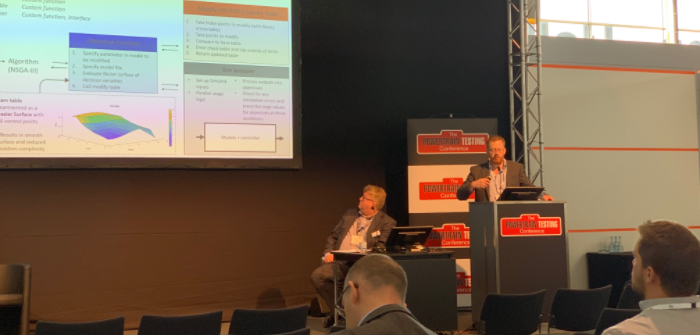The Powertrain Testing Conference, held at the 2019 Engine Expo + The Powertrain Technology Show in Stuttgart, saw Dr Byron Mason, senior lecturer in advanced propulsion at Loughborough University, detail the benefits that an analytical, robust, multi-objective dynamic optimization approach can have in the quest for greater engine performance for real-world driving.
According to Mason, his work determining the dynamic variable valve timing calibration of a downsized 1.0-liter SI engine has shown that the current calibration approaches fail to consider system time-dependent behavior (dynamics).
“Through dynamic characterization we are able to significantly reduce test times. It is a far faster process compared to the conventional approach,” said Mason. “The optimization approach that we developed doesn’t give you the best option, it gives you a number of best options, which can then be chosen from.”
The simulation results produced by Mason and his team, when looking at the valve timing calibration of a downsized 1.0-liter SI engine, highlighted the dominance of both fuel and NOx objectives, showing notably reduced fuel consumption and engine-out NOx emissions.
Overall, Mason found that the experimental results confirm that NOx emissions can be reduced with no detriment to fuel economy over the transient investigated.


